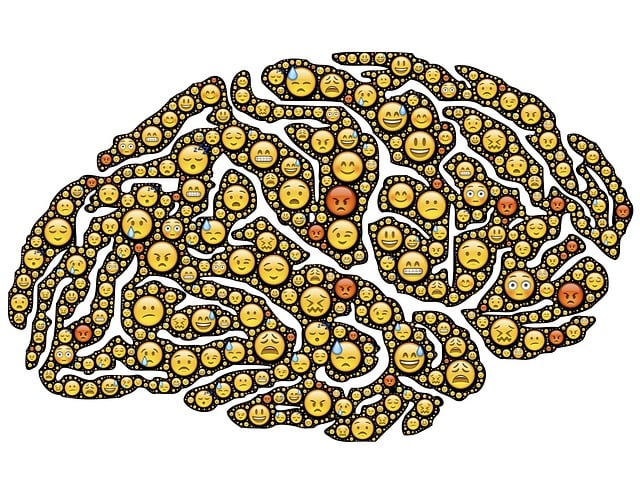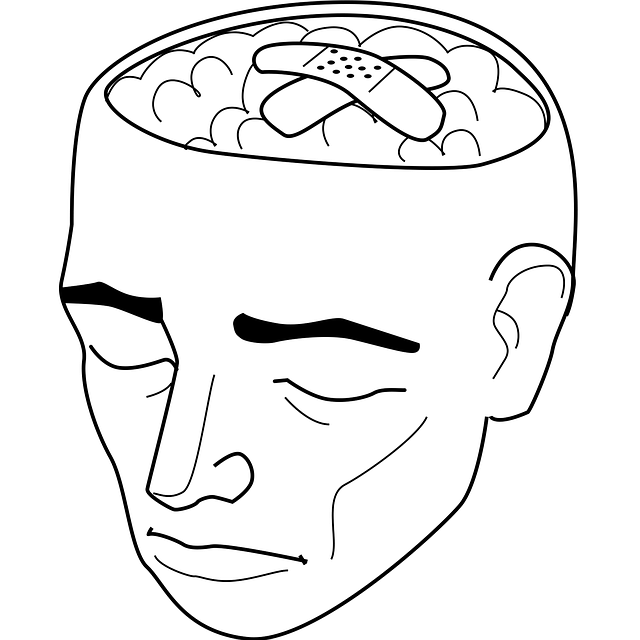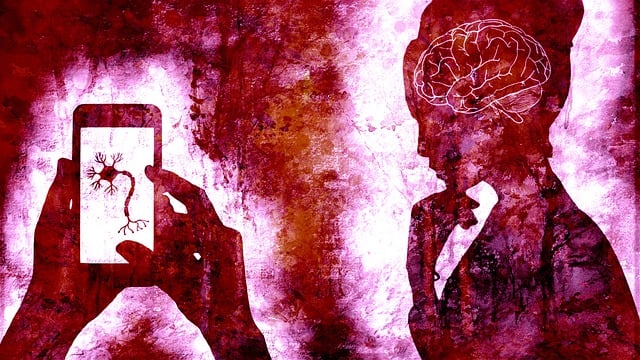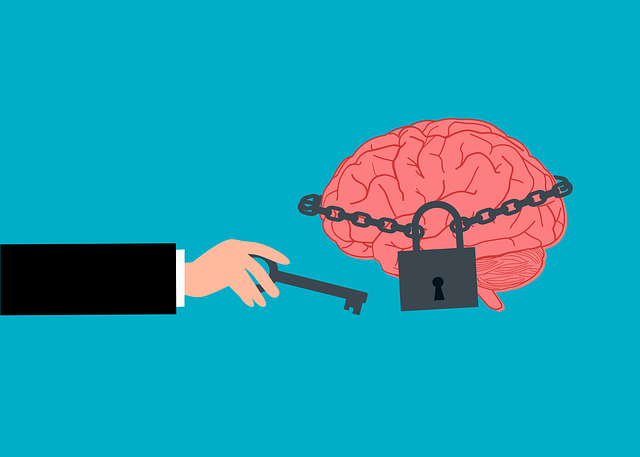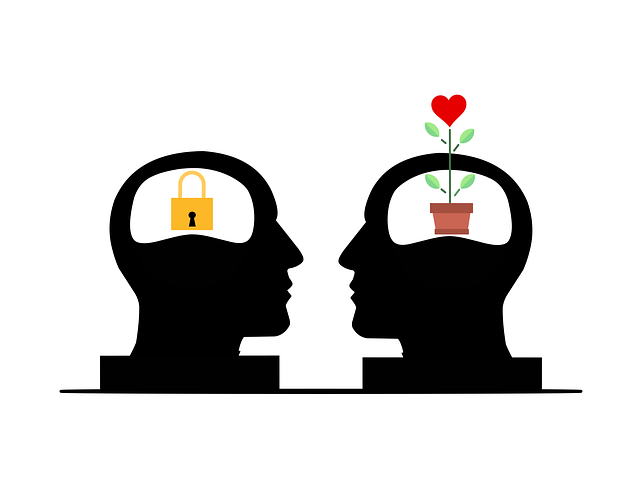Understanding Mental Health Data for young children with Bipolar Disorder is crucial for effective therapy. Data collection from school, healthcare, and parental reports reveals behaviors indicative of mental health issues. Advanced data analysis identifies early indicators, enabling precise evaluations and tailored treatment plans. Essential components include empathy building, mindfulness meditation, and cultural competency training. Continuous monitoring tracks progress and predicts relapses. Integrating podcasts makes complex information accessible, improving adherence to treatment. Therapy outcomes should track symptom reduction, daily functioning, social interactions, and quality of life. Ethical handling of data is vital, focusing on privacy, informed consent, and unbiased analysis for effective crisis management. Data-driven insights personalize therapy strategies, improve mood management, reduce stigma, and promote holistic well-being for young children with Bipolar Disorder.
Mental health data analysis is a powerful tool in understanding and treating conditions like bipolar disorder in young children. This article delves into the critical aspects of interpreting mental health data, focusing on therapy outcomes and personalized treatment strategies for bipolar disorder. We explore key challenges and ethical considerations while examining data collection sources and the role of analysis in accurate diagnosis. By leveraging data insights, healthcare professionals can navigate complex landscapes to provide effective therapy tailored to each child’s unique needs.
- Understanding Mental Health Data: Collection and Sources for Young Children
- The Role of Data Analysis in Diagnosing Bipolar Disorder in Childhood
- Interpreting Therapy Outcomes: Metrics and Measurements for Success
- Challenges and Ethical Considerations in Analyzing Child Mental Health Data
- Utilizing Data Insights to Personalize Treatment Strategies for Bipolar Disorder
Understanding Mental Health Data: Collection and Sources for Young Children

Understanding Mental Health Data for Young Children involves recognizing that their unique experiences and challenges require specialized approaches. Data collection in this context often stems from various sources, including school records, direct observations by healthcare providers, and parent or caregiver reports. These sources provide insights into behaviors, emotional states, and interactions that can indicate underlying mental health issues. For instance, therapy for young children with Bipolar Disorder might be initiated based on data suggesting extreme mood swings, impulsive behavior, or difficulties in social settings.
Empathy building strategies, mindfulness meditation, and healthcare provider cultural competency training are essential components in interpreting this data accurately. These tools enable professionals to approach young patients with sensitivity, ensuring a supportive environment that encourages open communication. By integrating these empathy-driven methods, mental health practitioners can gain a deeper understanding of the child’s experiences, thereby facilitating more effective treatment plans tailored to their individual needs.
The Role of Data Analysis in Diagnosing Bipolar Disorder in Childhood

Data analysis plays a pivotal role in diagnosing Bipolar Disorder in young children, offering insights beyond clinical observation alone. By sifting through vast datasets, researchers can identify patterns and trends that hint at early indicators of the disorder. This analytical approach allows for more precise evaluations, enabling therapists to tailor therapy for young children with Bipolar Disorder effectively. Advanced statistical methods help in understanding not just the symptoms but also their underlying causes, contributing to robust emotional healing processes.
Furthermore, continuous data monitoring can aid in tracking the progress of treatment interventions and even predict potential relapses. This dynamic perspective is crucial for healthcare providers, guiding them to implement tailored burnout prevention strategies. The integration of mental wellness podcast series production within this framework can offer additional support, making complex information accessible through engaging audio content. Such multimedia approaches enhance understanding and adherence to treatment plans, ultimately fostering better outcomes in managing Bipolar Disorder in childhood.
Interpreting Therapy Outcomes: Metrics and Measurements for Success

Interpreting therapy outcomes is a critical aspect of mental health care, especially when focusing on conditions like bipolar disorder in young children. Metrics and measurements should go beyond simple assessments to capture the nuanced progress of each child. This involves tracking not only symptom reduction but also improvements in daily functioning, social interactions, and quality of life. For instance, for young children with bipolar disorder, measures could include their ability to attend school regularly, maintain positive relationships with peers and family, and participate in age-appropriate activities without significant emotional disruptions.
While traditional therapy assessments are valuable, incorporating strategies like depression prevention through mindfulness meditation and conflict resolution techniques can provide a more holistic view of success. These approaches not only address symptoms but empower children with coping mechanisms to navigate future challenges. By integrating these evidence-based practices into therapy outcomes evaluation, mental health professionals can better understand the long-term impact and effectiveness of interventions, ultimately tailoring treatments to meet each child’s unique needs.
Challenges and Ethical Considerations in Analyzing Child Mental Health Data

Analyzing mental health data, particularly for children, presents a unique set of challenges and ethical dilemmas. When dealing with young individuals experiencing conditions such as bipolar disorder, therapists must navigate sensitive information while ensuring privacy and confidentiality. The data collected often includes personal details, symptoms, treatment responses, and family dynamics, all of which require careful handling to protect the child’s identity. Moreover, interpreting these data accurately is crucial for effective therapy planning and risk management.
Ethical considerations include obtaining informed consent from parents or guardians, especially when children are too young to understand their rights. Empathy building strategies play a vital role in gaining trust and fostering open communication. Additionally, mental health professionals must adhere to crisis intervention guidance to handle any potential emergencies while ensuring the data analysis process remains objective and unbiased, contributing to evidence-based practices for therapy in young children with bipolar disorder.
Utilizing Data Insights to Personalize Treatment Strategies for Bipolar Disorder

In the realm of mental health, data analysis plays a pivotal role in transforming treatment approaches for complex conditions like bipolar disorder, particularly when targeted at young children. By leveraging insights from extensive datasets, researchers and healthcare professionals can gain profound understanding into the unique manifestations and progression of this mental illness in childhood. This, in turn, enables the development of personalized therapy strategies that cater to individual needs. For instance, data might reveal distinct patterns in mood swings, sleep disturbances, and emotional regulation among young patients with bipolar disorder, informing tailored interventions focused on improving mood management skills and cultivating positive thinking.
Furthermore, the analysis of large-scale datasets can contribute significantly to mental illness stigma reduction efforts. By identifying common factors influencing successful outcomes in therapy for young children with bipolar disorder, healthcare providers can dispel myths and misconceptions surrounding this mental health condition. This data-driven approach not only aids in refining treatment protocols but also fosters a more empathetic societal understanding of mental illnesses, paving the way for effective support systems that challenge the stigma and promote holistic well-being among affected individuals.
Mental health data analysis plays a pivotal role in understanding and treating conditions like bipolar disorder in young children. By leveraging insights from collection and interpretation of data, healthcare professionals can personalize treatment strategies, improve therapy outcomes, and ultimately enhance the well-being of children affected by this complex condition. The ethical considerations and challenges outlined here must be carefully navigated to ensure responsible use of data while fostering effective therapy for young children with bipolar disorder.

